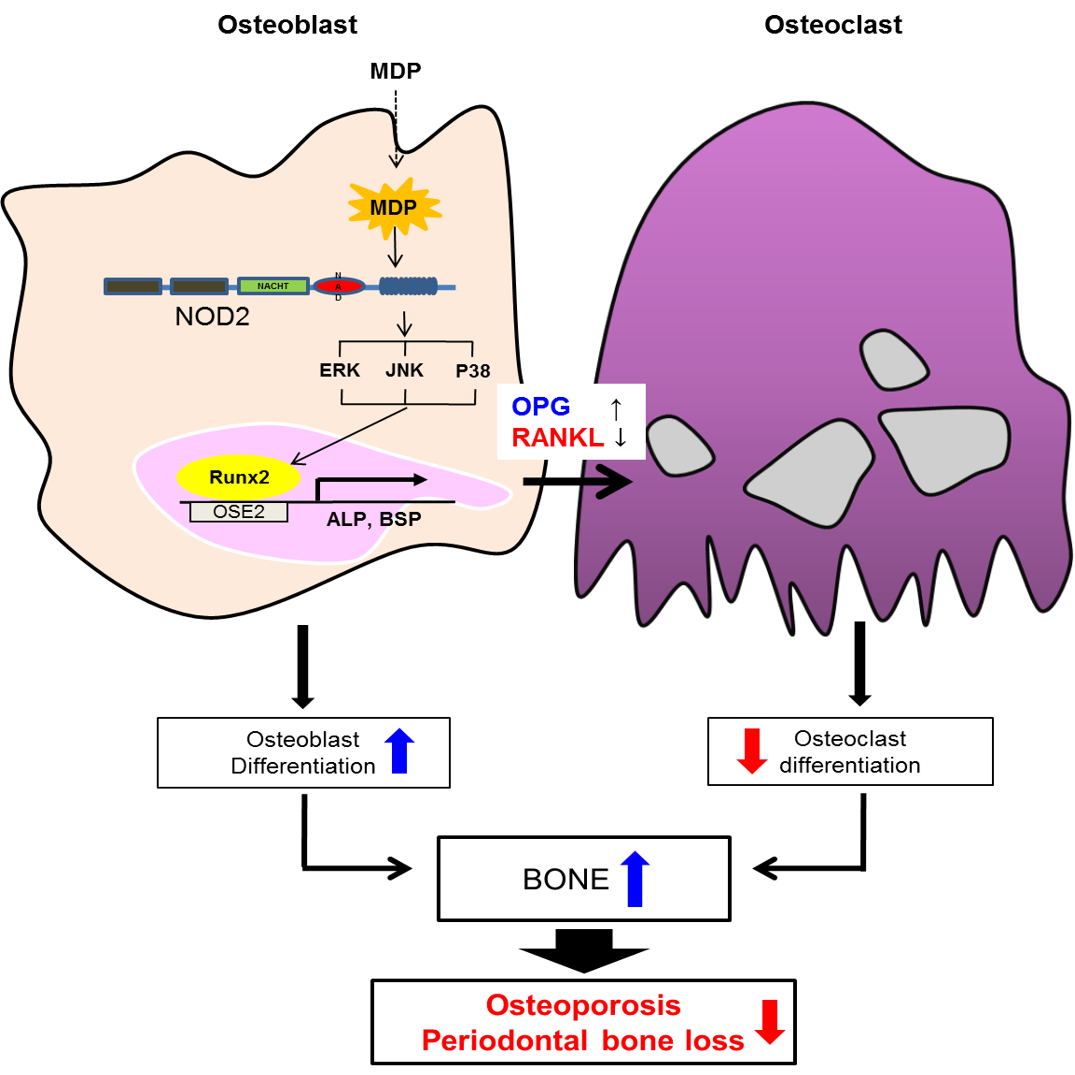Research Fields
감염성 골 질환 병인기전과 골 대사 조절
Mechanisms of Inflammatory Bone Diseases
and Regulation of Bone Metabolism


골 조직에서는 파골세포가 불필요한 뼈를 파괴/흡수시키고 조골세포가 새로운 뼈를 만들어내는 재형성 과정(bone remodeling)을 끊임없이 반복하며 항상성을 유지하고 있다. 파골세포와 조골세포의 분화와 활성이 균형과 조화를 이루지 못하고 항상성이 깨질 경우 골다공증(osteoporosis)이나 골석화증(osteopetrosis)이 유발될 수 있다. 뼈 속에는 골 세포 외에도 조혈모세포와 다양한 분화단계에 있는 면역세포들이 공존하며 서로 밀접하게 상호작용을 하고 있다. 본 연구실에서는, 세균감염에 의한 염증성 골 질환이 어떠한 과정에 의해 유발되는지, 세균의 어떤 구성물질이 골 질환 유발에 중요한지를 다양한 in vitro 및 in vivo 실험모델을 활용하여 연구하고 있다. 최근에는, 세균의 지질단백질이 염증성 골 질환을 유발하는 중요한 구성성분임을 규명한 바 있다. 한편, 인체 내에 존재하는 미생물총(microbiota)이 골 대사에 어떠한 영향을 주는지 연구하고 있으며, 장내 미생물에서 유리된 물질이 뼈 형성을 촉진할 수 있다는 연구결과를 확보하여 작용기전 연구와 함께 골 질환 예방 및 치료제로서의 응용 연구를 수행하고 있다. 이러한 연구는 치아 우식, 치주질환, 류마티스성 관절염과 같은 염증성 골 질환의 병인기전 이해와 골 질환 예방 및 치료제 개발을 위한 핵심 타겟 발굴에 기여할 것이다.
Bone tissues maintain homeostasis through continuous bone remodeling, a process in which osteoclasts break or absorb mature bone tissues while osteoblasts form new bone tissues. The bone consists of not only osteoblasts but also hematopoietic stem cells and various immune cells at various division stages which closely interact with each other. Using in vitro and in vivo models, our laboratory broadly studies inflammatory bone diseases caused by unbalanced bone remodeling and identifies the bacterial components responsible for the inflammatory bone diseases. Moreover, we explore the effect of intestinal microbiota on bone metabolism, especially, a specific bacterial component or microbial metabolite contributing to bone formation which may prevent several bone diseases such as osteoporosis, rheumatoid arthritis, dental carries and periodontal diseases.
Address
서울특별시 관악구 관악로 1, 서울대학교 86동 309호
Call Us
02) 880 2324
Email Us
okjpark7@snu.ac.kr
